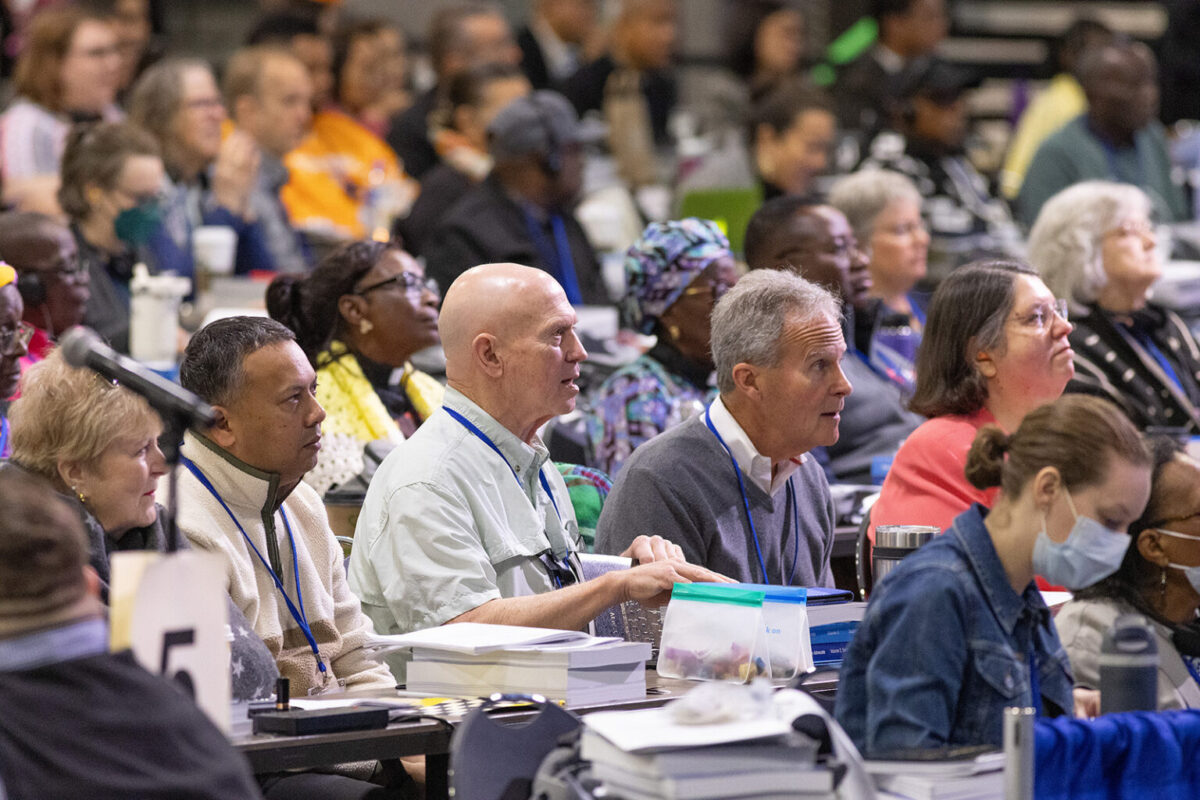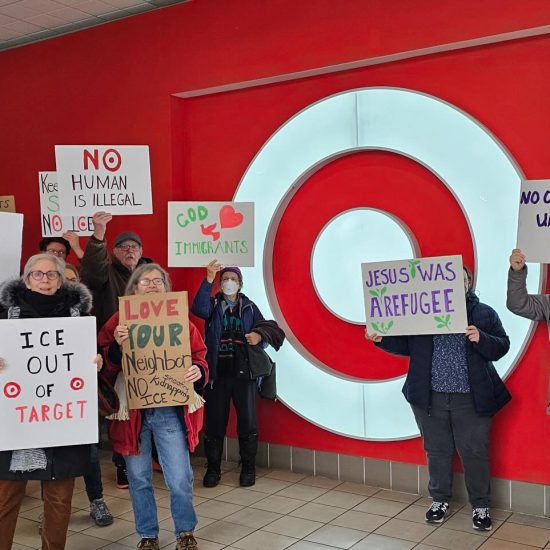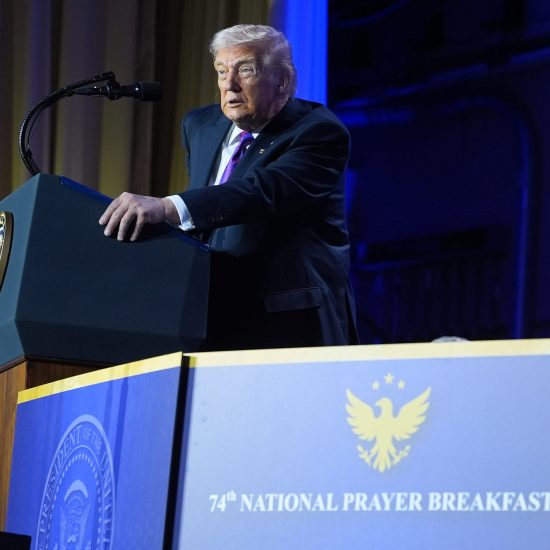
(RNS) — United Methodists gathered in Charlotte, North Carolina, for their long-delayed General Conference have shown themselves willing to take bold steps on big issues. The delegates have already voted this week to reorganize the denomination to allow for greater regional autonomy and to scrub its governing Book of Discipline of its ban on LGBTQ clergy.

Delegates consider legislation at the 2024 United Methodist General Conference in Charlotte, N.C. (Photo by Mike DuBose, UM News)
They have also passed a number of petitions on social issues, including one condemning “extreme and prejudicial Nationalism.” While the proposed petition doesn’t address Christian Nationalism per se, the UMC’s public policy arm, the General Board of Church and Society, released a statement last month on “Christian Nationalism in the U.S.”
This is a potentially fruitful area of witness that would be stronger if the United Methodists were willing to reckon with their own role in promoting the ideology.
The board’s statement rightly condemns Christian Nationalism “as a political ideology that seeks to merge Christianity and a particular type of American identity, distorting both the Christian faith and the United States Constitution.” It also lifts up the importance of “the separation of church and state as outlined by the U.S. Constitution,” and it encourages United Methodists to advocate against the ideology.
But while correctly noting that “Christian Nationalism is not new,” the statement does not unpack the ways United Methodists themselves have been part of that history. Conservative evangelicals receive nearly all the scrutiny for advancing Christian Nationalism today, but mainline Protestants, including Methodists, have taken part in its long history in the United States.

“Baptizing America: How Mainline Protestants Helped Build Christian Nationalism” by Brian Kaylor and Beau Underwood. (Courtesy image)
Consider a few examples from our forthcoming book, “Baptizing America,” on the role some United Methodists or those churches and groups that came together in 1968 to form the UMC played in fueling this framework of beliefs that merges national and religious identities.
The official prayer in public schools that the U.S. Supreme Court ruled unconstitutional in Engel v. Vitale in 1962 had first been used a decade earlier in schools in New York, where Methodist ministers praised the prayer and the expectation that students start each day by reciting it.
Nearly two decades earlier, Methodist clergyman Abraham Vereide was a key figure in the founding of the National Prayer Breakfast, an annual gathering of mostly Christian politicians and clergy in Washington often cited as an example of Christian Nationalism today. Lay Methodists in Congress and other branches of government helped increase the influence of Vereide and his group, and Methodist clergy strongly backed the idea of a prayer breakfast.
Mainline denominations — especially Methodists, American Baptists, Episcopalians, and Presbyterians — have long served as chaplains for the U.S. House and Senate. Methodists comprise 27% of these official chaplains over 230 years, more than any group. James Madison, the key crafter of the U.S. Constitution, argued such chaplains were “a palpable violation of equal rights” and went against the principle of church-state separation.
Given this history, it’s ironic that numerous commentators pointed to the prayer of the “QAnon Shaman” in the Senate chamber during the Jan. 6 insurrection as proof of Christian Nationalism’s influence on the day’s events. For most of Congress’ history, someone, most often a Methodist, is paid by the government to offer prayers as part of the government’s official business.
The Rev. Frederick Brown Harris, the longest-serving Senate chaplain, started the Senate’s Sept. 11, 1963, session by declaring the lawmakers “bow at this altar of prayer because in our hearts we know that the destiny of this nation is inseparably bound up with loyalty to its national heritage. That heritage is rooted in thee.” He added the lawmakers were “called to serve” the goal of making the nation trust in God, a vision he requested God grant as “we ask in the spirit of Christ. Amen.”
It might be a softer, friendlier version than what we saw at the U.S. Capitol on Jan. 6, but the merging of Christianity and Americanism still exists even in many progressive Methodist churches. It can be seen in United Methodist hymnals, in services said around patriotic holidays, and in other ways.
This General Conference is the perfect time to address Christian Nationalism in the nation, and in UMC churches and institutions as well. The departure of one-quarter of U.S. UMC churches over LGBTQ issues means the conservative ranks are depleted, though the denomination is still quite diverse and bipartisan. Without some of the most conservative members, some of whom defended the events of Jan. 6, the UMC has never been in a better place to prophetically address Christian Nationalism than now.
We hope United Methodists will speak forcefully against the Christian Nationalism that threatens U.S. democracy and undermines the Christian witness. By considering how this pernicious ideology has been advanced within Methodism, pastors and lay leaders today can lean into the admonition of John Wesley: “We are always open to instruction, willing to be wiser every day than we were before, and to change whatever we can change for the better.”
(Brian Kaylor, a Baptist minister, and Beau Underwood, a Christian Church (Disciples of Christ) pastor, are the authors of “Baptizing America: How Mainline Protestants Helped Build Christian Nationalism.” The views expressed in this commentary do not necessarily reflect those of Religion News Service.)






